The hot potato of the European Council
Ralitsa Kovacheva, October 28, 2010
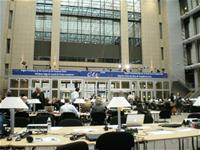 The leaders of the 27 EU Member States will arrive at the Council building between 16:30 and 17 p.m. local time. First, they will meet with the President of the European Parliament Jerzy Buzek (in 17:00), then they will make the traditional family photo. Jerzy Buzek will give a briefing for media to announce the position of Parliament, which he would express before the Council.
The leaders of the 27 EU Member States will arrive at the Council building between 16:30 and 17 p.m. local time. First, they will meet with the President of the European Parliament Jerzy Buzek (in 17:00), then they will make the traditional family photo. Jerzy Buzek will give a briefing for media to announce the position of Parliament, which he would express before the Council.
Meanwhile, the leaders will begin their first working session. Unlike other times when controversial issues were left over for the working dinner or for the next morning, this time the "hot potato" - the economic governance of the Union - is the first item on the agenda. The leaders will discuss and likely approve the report of the Task Force headed by the European Council President Herman Van Rompuy. It summarises the proposals aimed at strengthening financial discipline and macroeconomic surveillance in the Union, which have been approved by the Council of finance ministers last week.
In the mean time, however, the Franco-German proposal of Deauville appeared, which took to the fore the issue of changes in the Lisbon Treaty. Germany retreated from its position for tough and swift sanctions against countries that violate the Stability and Growth Pact in order to win the French support for changes in the Treaty. Chancellor Merkel's argument is that this is the only way to ensure a legal basis to establish a permanent rescue fund for the euro area, instead of the temporary fund set up for Greece. The so-called European Financial Stability Facility (EFSF) expires in 2013 and, if prolonged, the German Constitutional Court may challenge that decision, Merkel says.
Meanwhile, such a crisis mechanism is needed to prevent crises like the Greek one. Last but not least, the proposal for a European Monetary Fund (EMF), presented this spring and supported by Germany, provides a mechanism for official state bankruptcy, although this is still a taboo topic for the European institutions.
The Parliament, however, adopted a resolution in favour of the creation of the EMF. MEPs also insist a new post to be created - Mr or Ms Euro, responsible for the economic and monetary policy, who must also be a Vice President of the Commission and also to chair the Council of Finance Ministers and the meetings of the Eurogroup. To that end, Treaty changes are also needed and the issue is likely to be a subject of Council deliberations.
The President of the European Central Bank Jean-Claude Trichet is also invited 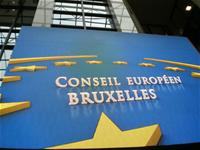 at the afternoon session of the Council. It is likely that he would make the debate even more heated: Trichet has already spoken against some elements of the Task Force Report and against the Franco-German proposals.
at the afternoon session of the Council. It is likely that he would make the debate even more heated: Trichet has already spoken against some elements of the Task Force Report and against the Franco-German proposals.
Another item on the agenda is EU's position for the upcoming summit of the G20 in Seoul. Over dinner, the leaders will discuss the preparations of the forthcoming bilateral summits - with the U.S., Russia and Ukraine. On Friday morning, they must approve the Council conclusions and discuss their common position for the conference on climate change in Cancun.
We can only guess when British Prime Minister David Cameron will decide to refer the issue of EU's budget for 2011. Cameron is strongly against any increase of EU's spending and accordingly - the Member States contributions, at a time when they are forced to make drastic cuts to save their national budgets. According to European Voice, Cameron has taken a phone offensive on Wednesday evening, discussing the issue with German Chancellor Angela Merkel, French President Nicolas Sarkozy, the President of the European Council Herman van Rompuy, the Prime ministers of Sweden and Belgium Fredrik Reinfeldt and Yves Leterme.
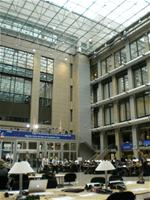 The results of the Council will be clear tomorrow in the early afternoon, when there will be briefings of the leaders of the European institutions and of the national governments. euinside will follow the press conference of European Council President Herman Van Rompuy and the President of the European Commission Jose Manuel Barroso, British Prime Minister David Cameron and German Chancellor Angela Merkel, as well as Bulgarian Prime Minister Boyko Borissov. So expect our analyses and comments on this topic in the coming days.
The results of the Council will be clear tomorrow in the early afternoon, when there will be briefings of the leaders of the European institutions and of the national governments. euinside will follow the press conference of European Council President Herman Van Rompuy and the President of the European Commission Jose Manuel Barroso, British Prime Minister David Cameron and German Chancellor Angela Merkel, as well as Bulgarian Prime Minister Boyko Borissov. So expect our analyses and comments on this topic in the coming days.
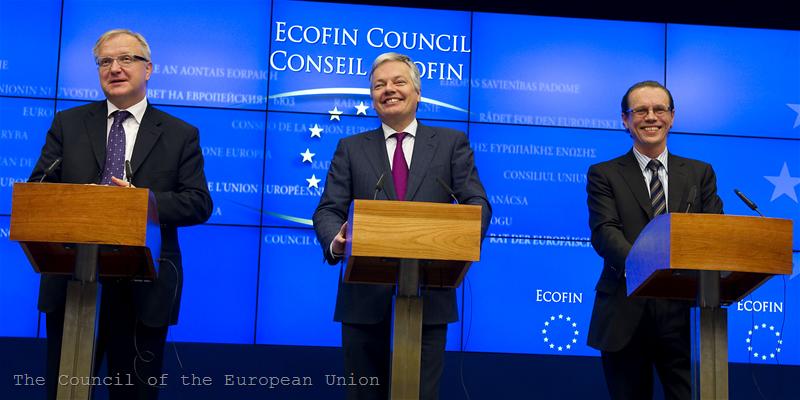 | © The Council of the European Union
| © The Council of the European Union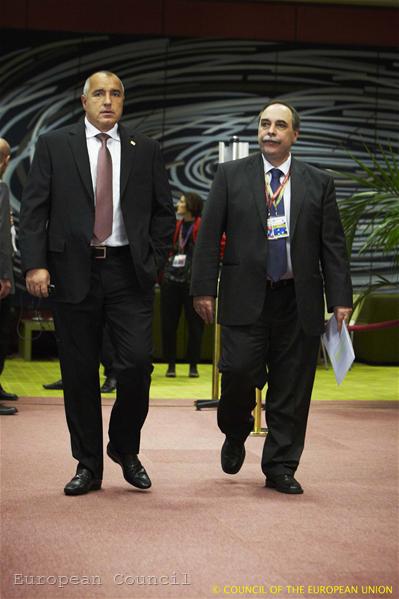 | © European Council
| © European Council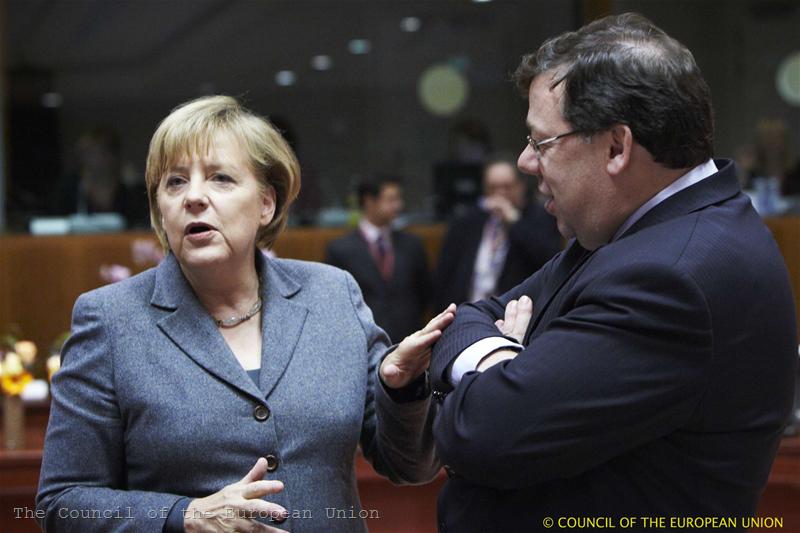 | © The Council of the European Union
| © The Council of the European Union